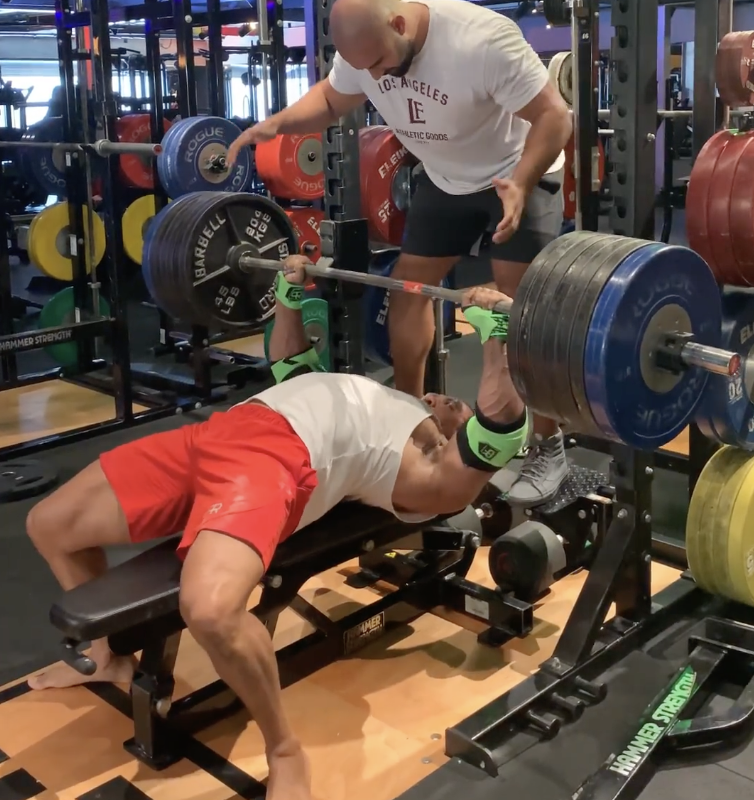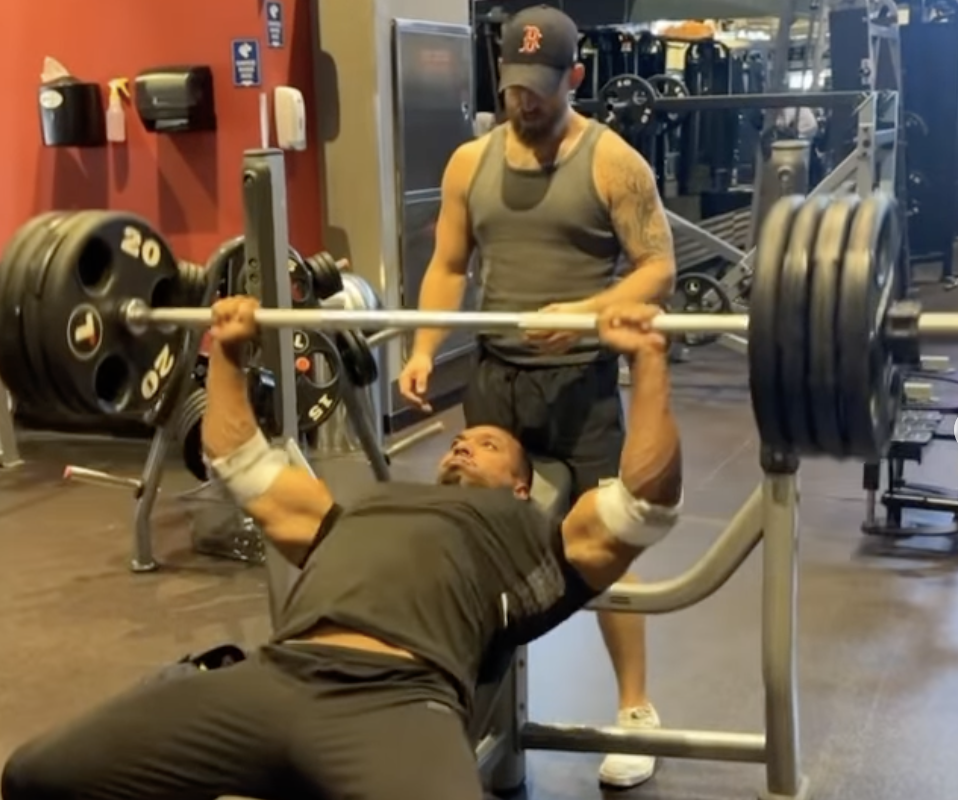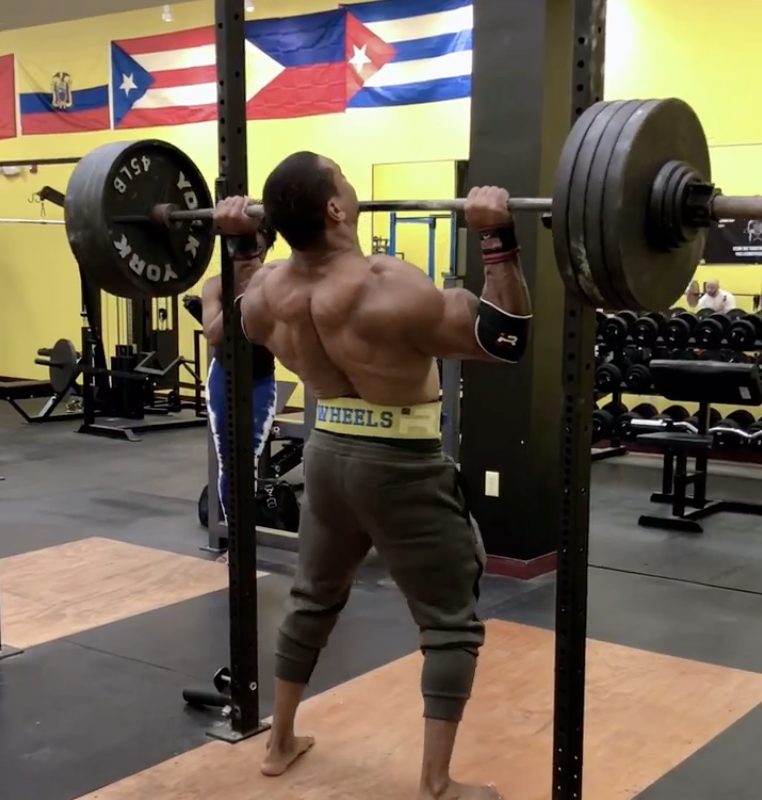The Benefits of Elbow Sleeves for Lifting
Written by the Boostcamp staff
Maximize your gains with elbow sleeves
Whether you are looking to improve your performance on the big compound lifts, you are experiencing some joint pain in your elbows, or want to prevent an injury, elbow sleeves may be just what you need. Let’s take a detailed look into the world of elbow sleeves and the benefits they can bring to any type of strength training, whether you are an Olympic weightlifter, a competitive powerlifter, or bodybuilder. From taking a look at what they are and how they work to their benefits and practical tips for using them effectively. You'll learn about the role compression plays in lifting, the types of elbow sleeves available, and how they can help prevent injuries.
We'll also discuss when to use them during powerlifting, Crossfit training, and even your bodybuilding workouts. Lastly, we'll provide tips on selecting the right sleeve material and how to properly wear and care for them.
So if you're ready to take your lifting game to the next level, let's get started!
What are Elbow Sleeves?

Image courtesy of @larrywheels Instagram
Elbow sleeves are a popular choice for weightlifters of all kinds to add to their gym bag essentials because of their ability to provide joint support during intense training sessions, just like knee sleeves do for your knees during your squats and other leg day exercises. These compression sleeves are specifically designed to fit the elbow joint snugly, offering stability and reducing pain and discomfort while lifting, particularly during pressing movements like the bench press. That being said, elbow sleeves are great during your push day exercises, whether you are working on your chest or your shoulders.
Additionally, elbow sleeves aid in muscle recovery by promoting blood flow to the arm muscles, allowing for faster healing and reduced soreness in between your sets. Whether you're a beginner or a seasoned lifter, investing in the best elbow sleeve for your needs, can greatly enhance your weight training experience.
Types of Elbow Sleeves
There are various types of elbow sleeves available for lifters, each catering to different needs and preferences. These sleeves come in different thickness levels, allowing lifters to choose the perfect fit based on their requirements. Additionally, elbow sleeves offer various compression levels, providing the necessary support for the elbows during weight training. Some sleeves are specifically designed for powerlifting, offering extra stability and reinforcement. On the other hand, elbow sleeves made of spandex provide mobility and flexibility for a full range of motion. For those seeking longevity and durability, premium elbow sleeves are known to be highly reliable.
How Elbow Sleeves Aid While Resistance Training
Elbow sleeves play a crucial role in enhancing lifting performance and preventing injuries, making them popular choices for bodybuilders and strength athletes. The compression provided by elbow sleeves helps to lower blood lactate levels during lifting, allowing you to push through intense workouts.
Additionally, these sleeves offer joint support for movements like the military and bench press, reducing strain on your elbows. By reducing blood pooling and swelling in the elbow joint, elbow sleeves improve stability and form, leading to more efficient and effective lifts. They are particularly beneficial for weightlifters looking to prevent injuries and maintain optimal performance during weight training sessions.
The Role of Compression in Lifting
Compression elbow sleeves provide a comfortable fit for weightlifting, offering the perfect support for your elbows. These sleeves are designed with the right balance of compression to aid in muscle recovery and improve blood circulation during your workouts. By providing compression, these sleeves help support your tendons and muscles, reducing aches and discomfort. Whether you're a beginner or an experienced lifter, the benefits of elbow sleeves with compression cannot be overstated. They are especially beneficial for those experiencing elbow pain or looking to enhance their performance in weight training. Try out different brands like Gymreapers, Tuff Elbow Sleeves, or braces designed specifically for lifters to find the best elbow sleeves that match your needs.
Elbow Sleeves and Their Effect on Athletic Performance
Scientific studies have revealed that elbow sleeves can greatly enhance athletic performance. These sleeves provide much-needed support to the arm muscles, resulting in improved lifting power. Now, you won’t be tripling the weight on your pressing movements, but elbow sleeves do help to lift a bit more weight, so they are good tools for incorporating progressive overload. It's no wonder why professional lifters often rely on elbow sleeves for maximum support during their intense training sessions.
Elbow Sleeves and Their Role in Injury Prevention
Elbow sleeves are widely known for their injury prevention benefits in the world of lifting. These sleeves provide extra support and compression to the elbow joint, helping to reduce the risk of common injuries like tennis elbow and tendonitis. By improving joint stability, elbow sleeves also lower the chance of experiencing joint discomfort during weightlifting sessions. Moreover, they help protect the muscles and tendons from strain, ensuring a safer and more efficient lifting experience. Whether you're a first-timer or a seasoned lifter, investing in the best elbow sleeve that offers a perfect fit can provide significant benefits in terms of injury prevention and overall performance.
When to Use Elbow Sleeves in Lifting

Image courtesy of @larrywheels Instagram
Elbow sleeves for lifting are essential for injury prevention and provide extra support and joint stability during intense training sessions, but that does not mean to use them for every single rep, set, and training session. The body can become used to aids such as elbow sleeves, and then when it comes time to training without them, you are at even more risk for an injury and cannot lift as much. There are times to use elbow sleeves
Let’s take a look.
Powerlifting Scenarios
Powerlifting scenarios provide the perfect opportunity to experience the benefits of elbow sleeves. When you are powerlifting, you are aiming to hit a heavy one rep max on the squat, bench, and deadlift during a competition, so chances are you will be training pretty heavy. That being said, you can benefit from the joint support, especially during pressing movements and these sleeves offer that stability and support during intense training sessions, ensuring you can tackle heavy weights with confidence. The comfort and flexibility of elbow sleeves allow for a full range of motion, enhancing your performance in powerlifting. Additionally, their compression properties aid in promoting blood flow and reducing aches and discomfort associated with the demands of heavy lifting. For powerlifters, elbow sleeves are an essential accessory that provides the support and protection necessary to excel in their sport.
Bodybuilding Applications
Elbow sleeves do not only get used by powerlifters, but bodybuilders as well. Bodybuilders train heavy too, so they need that extra compression to help with stability, support, and injury prevention. Especially when leading up to a competition, your body tends to get weaker. Bodybuilding preps can drain you, as you are eating less and the joints tend to dry out, which puts lifters at risk, so equipment like elbow sleeves can certainly help.
Selecting the Right Elbow Sleeves for Lifting
When it comes to selecting the right elbow sleeves for lifting, there are a few key factors to consider. First, the material of the elbow sleeves is important for ensuring durability and longevity, as you want sleeves that can withstand intense training sessions without wearing out quickly. There is nothing worse than buying the same accessories over and over because they keep wearing out and falling apart. However, with cheap and not durable elbow sleeves, you also risk them falling apart and getting injured.
Additionally, finding the perfect fit is essential for maximum support and joint stability. Elbow sleeves that are too loose or too tight may not provide the necessary compression and support. It's also important to look for sleeves that offer a comfortable fit, allowing for a full range of motion during exercises.
Finally, finding elbow sleeves that strike the right balance between compression and mobility is crucial for lifting. You don’t want a pair that restrict you too much, as they can prevent you from getting that full range of motion and really hitting the target muscle. Keep these considerations in mind when selecting elbow sleeves for weightlifting to ensure you get the best possible support and benefits.=
Practical Tips for Using Elbow Sleeves

Image courtesy of @larrywheels Instagram
To get the most out of your elbow sleeves for lifting, it's important to ensure a snug, but comfortable fit. This provides maximum support and compression benefits, helping to alleviate any elbow pain you may experience during your workouts. Incorporating elbow sleeves into your training program is great, but don’t forget that a warm-up routine is also beneficial. They promotes blood flow and joint mobility, preparing your elbows for the weight training ahead.
During exercises like bench press and squat, elbow sleeves offer crucial support for joint stability. However, it's important to remember that while elbow sleeves are a helpful accessory, they should not replace proper training techniques and injury prevention strategies.
How to Properly Wear Elbow Sleeves
To properly wear elbow sleeves for lifting, it's important to follow a few guidelines. First, make sure you choose the right size for a perfect fit. This ensures maximum effectiveness and comfort during your workouts. When putting on the sleeves, they should be snug but not too tight, providing the necessary support and elbow compression. Remember to place them over the forearm as well as the bicep muscles to target the elbow joint.
Additionally, regularly washing the sleeves helps maintain their effectiveness and prevents odor buildup. However, it's crucial to remember that elbow sleeves are not a replacement for proper form and technique during lifting. They provide support, but it's still important to prioritize proper lifting techniques to avoid injury.
Maintenance and Care of Elbow Sleeves
Proper maintenance and care of elbow sleeves are essential to ensure their longevity and effectiveness. These sleeves provide compression and support to the elbow joint during lifting exercises, reducing pain and preventing injury. To keep them in optimal condition, washing them regularly and air drying them is important to prevent bacteria buildup. Avoid exposing them to extreme temperatures or using harsh chemicals when cleaning. By taking these steps, you can extend the lifespan of your elbow sleeves and continue to enjoy the benefits they provide during weight training sessions.
Conclusion
In conclusion, elbow sleeves are a valuable accessory for lifting enthusiasts. They provide support, stability, and compression to the elbow joint, helping to enhance blood circulation, reduce joint pain, and improve overall lifting performance. Whether you are into powerlifting, CrossFit training, or bodybuilding, elbow sleeves can be beneficial in preventing injuries and maximizing your lifting potential. When selecting elbow sleeves, consider factors such as material, fit, and durability to ensure you choose the right ones for your needs.
Remember to properly wear and maintain your elbow sleeves for optimal results. While elbow sleeves aren't necessary for all types of lifting, they can greatly benefit those who engage in intense weightlifting activities. So, if you're looking to take your lifting game to the next level, give elbow sleeves a try and experience the difference they can make.
Also, be sure to follow Boostcamp on Instagram and subscribe on YouTube!

Header image courtesy of Instagram (@eddihallwsm)

